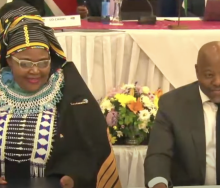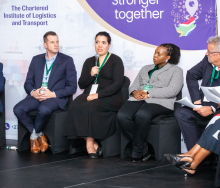Just over a week after Mozambique reached an energy milestone with the first shipment of liquid natural gas (LNG) from its Coral Sul floating facility (*) off the coast of Cabo Delgado, the country has reconfirmed its commitment to fighting insurgency in the gas-rich province.
Once referred to as a sunny place for shady people, Cabo Delgado seems to have been successfully wrenched free from the sporadic violence that has plagued Mozambique’s border territory with Tanzania.
Previously, gun-toting and machete-wielding Islamists used to hold parts of the province hostage to its terror-fuelled ways.
Seizing port enclaves like Mocímboa da Praia not only led to widespread mayhem and displacement of terrified people, but also disrupted extensive gas exploration projects totalling some R60 billion in foreign currency pouring into Mozambique – the second-biggest global investment driver after the International Space Station.
Now though, Cabo Delgado’s energy future is securely back on track.
Yesterday, Radio Mozambique reported that President Filipe Nyusi had announced the reinforcement of a military security cordon in the north of Cabo Delgado to facilitate the progress of natural gas exploration projects in the Rovuma Basin.
Nyusi said that this aimed to ensure the country’s prospects with regard to gas production.
“We formed a defensive cordon by increasing the capacity of the Defence and Security Forces, and with the support of friendly forces from Rwanda and SADC in areas adjacent to Palma district,” the president said.
“At this moment, and progressively, the situation is returning to normality. The population is returning and local authorities are being re-established. The gradual reconstruction of social infrastructure is happening in the destroyed zones.”
On Wednesday he said that Mozambique could see a gradual increase in gas production levels and exports to African countries by 2050.
Projections indicate that production will rise from four billion cubic metres per year (in 2021), to 83bn by 2050.
“By 2050, Mozambique could be the biggest producer and exporter of LNG, above countries in the maturity phase. In this sense, our positioning depends on the resumption of construction work on the onshore modules for Area 1 and the continuation of work on Area 4, onshore,” Nyusi said.
* Read this for context: https://tinyurl.com/y4fe76tw













